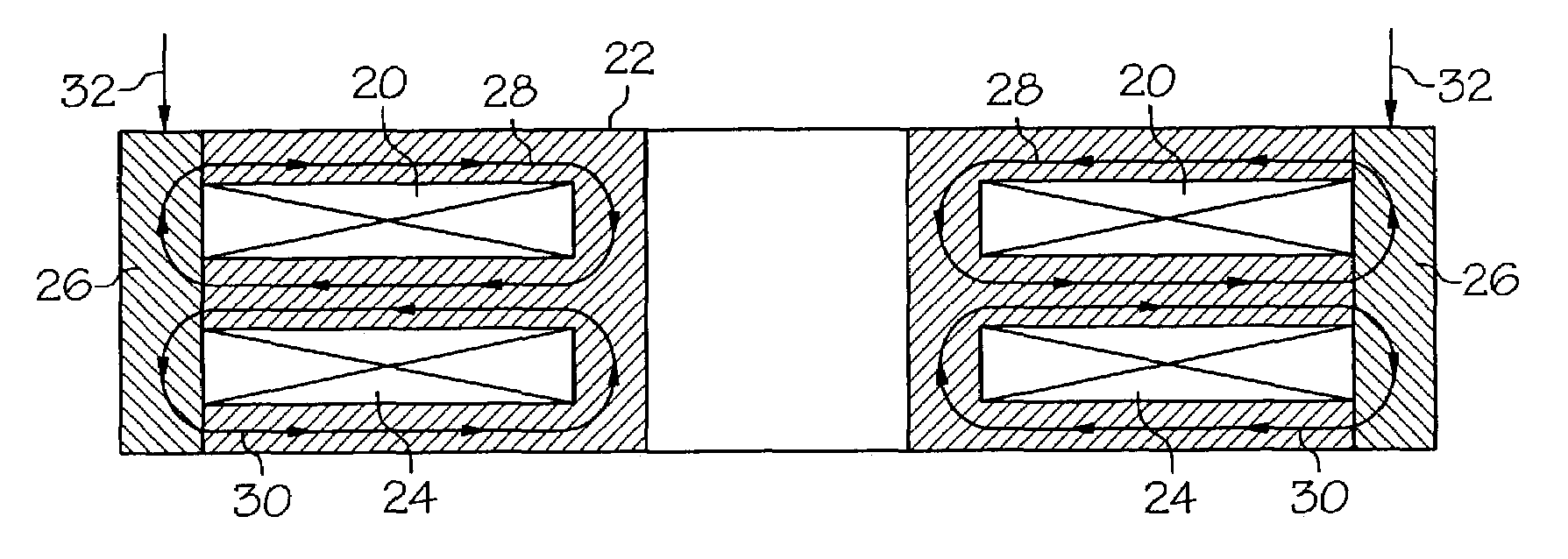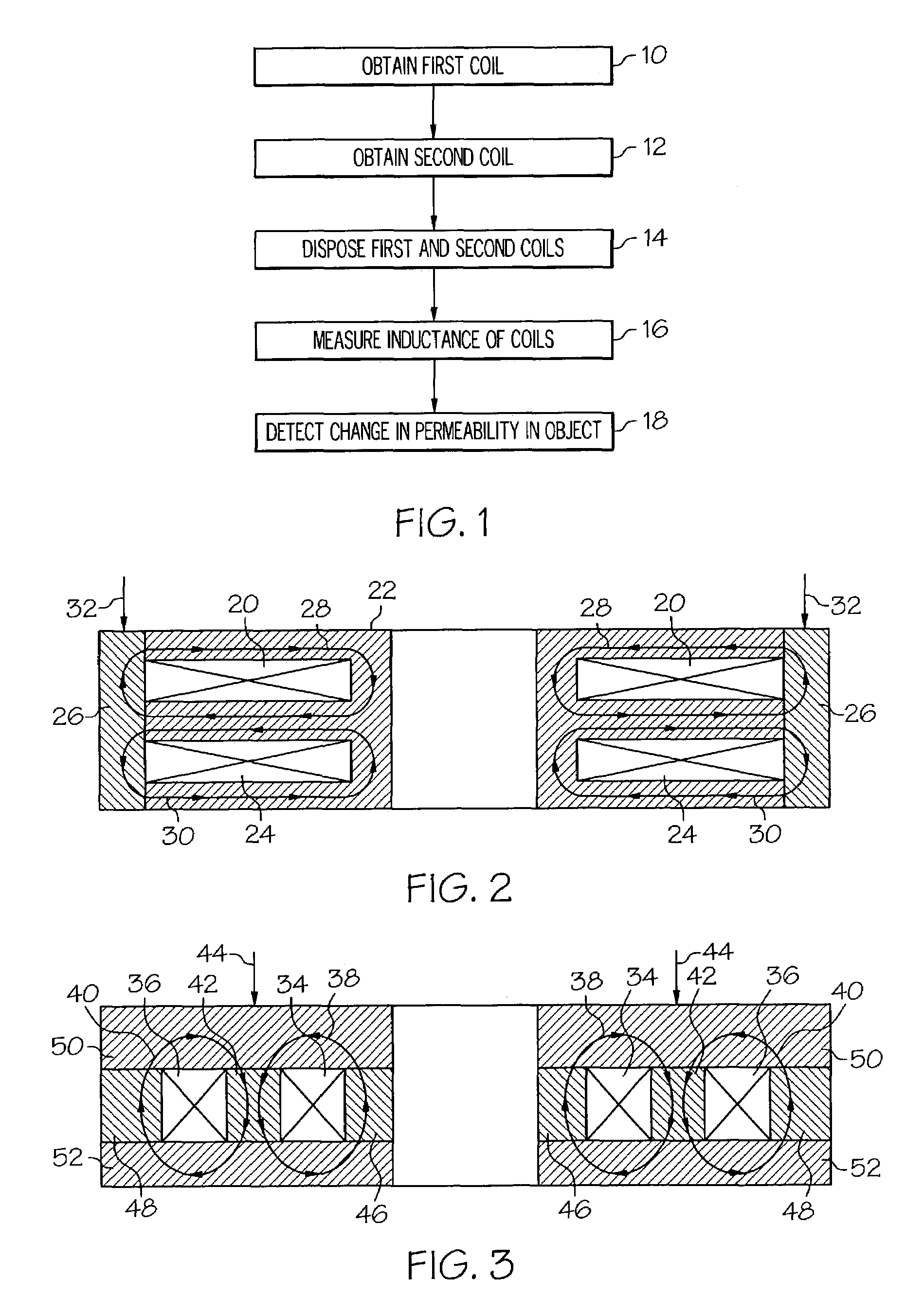Method for detecting a change in permeability of a magnetostrictive object
a magnetostrictive object and change of permeability technology, applied in the field of magnetic permeability, can solve the problems of inaccuracy in determining the change of permeability of the object, and adds to the cost and space requirements of making such measurements
- Summary
- Abstract
- Description
- Claims
- Application Information
AI Technical Summary
Benefits of technology
Problems solved by technology
Method used
Image
Examples
first embodiment
[0021]apparatus which can be used to carry out any of the above methods is shown schematically in FIG. 2. The circular first coil 20 is disposed in a first recess of an optional ferromagnetic bobbin 22, and the circular second coil 24 is disposed in a second recess of the ferromagnetic bobbin 22. The magnetostrictive object 26 in this embodiment is a circular ring. The outer circumference of the first and second coils 20 and 24 is disposed in contact with the inner circumference of the ring. In one choice of materials, the object 26 consists essentially of nickel. Other choices of materials for the ferromagnetic object 26 are left to the artisan. The first and second coils 20 and 24 are connected in series (such connection being omitted from FIG. 2 for clarity). The first coil 20 has turns wound in an opposite direction to the turns of the second coil 24. The magnetic flux lines 28 induced by the alternating electric current in the first coil 20 are shown as a single loop with arrow...
second embodiment
[0022]apparatus which can be used to carry out any of the above methods is shown schematically in FIG. 3. The first coil 34 and the second coil 36 are disposed as shown. The magnetic flux lines 38 of the first coil 34 and the magnetic flux lines 40 of the second coil 36 are shown as loops “running” in opposite directions wherein the magnetic flux lines 38 and 40 pass each pass through a portion of the magnetostrictive object 42 in a direction parallel to (and the same as) the strain direction 44. The apparatus also includes other magnetostrictive rings 46 and 48 and upper and lower steel annular bands 50 and 52 as shown. Still other embodiments of apparatus to carry out any of the above methods are left to the artisan in view of the above teachings.
[0023]Several benefits and advantages are derived from one or more of the methods of the invention. By using at least one first coil and at least one second coil which together substantially cancel out electromagnetic interference, a more...
PUM
 Login to View More
Login to View More Abstract
Description
Claims
Application Information
 Login to View More
Login to View More - R&D
- Intellectual Property
- Life Sciences
- Materials
- Tech Scout
- Unparalleled Data Quality
- Higher Quality Content
- 60% Fewer Hallucinations
Browse by: Latest US Patents, China's latest patents, Technical Efficacy Thesaurus, Application Domain, Technology Topic, Popular Technical Reports.
© 2025 PatSnap. All rights reserved.Legal|Privacy policy|Modern Slavery Act Transparency Statement|Sitemap|About US| Contact US: help@patsnap.com


